Have you ever seen your bearded dragon chase a crawling beetle and wondered, can bearded dragons eat beetles? It’s a common question for reptile owners—and an important one. With so many insects available, choosing the right ones for your pet’s diet is crucial.
The short answer? Bearded dragons can eat some types of beetles, but not all of them are safe. Certain beetles are hard to digest. Others may cause digestive issues or health problems if fed too often.
This guide will help you answer the question “can bearded dragons eat beetles?” with confidence. We’ll explore which beetles are safe, which to avoid, and how to serve them the right way.
Can Bearded Dragons Eat Beetles Safely or Not?
Beetles are everywhere—but can bearded dragons eat beetles safely or not? While some species are harmless in small amounts, others pose serious risks to your beardie’s health if fed carelessly.
Which Beetles Are Dangerous for Bearded Dragons to Digest?
Not all beetles are safe for bearded dragons. Some have extremely hard exoskeletons made of chitin, which can cause serious digestive issues. When your bearded dragon eats a beetle that’s too tough, it may lead to impaction—a painful blockage in the gut. Beetles that are large, overly crunchy, or have chemical defenses should be avoided entirely.
In particular, avoid brightly colored beetles, as they often signal toxicity in the wild. Some species can also bite or release irritants, which can stress or harm your pet. Even if the beetle doesn’t appear dangerous, its body structure alone can make it difficult to chew or pass. If a beetle is hard enough to crunch loudly when stepped on, it’s probably too risky to feed. When in doubt, stick to softer, known-safe insects.
Safe Beetle Species for Reptile Feeding (Like Darkling Beetles)
While most beetles aren’t ideal, some are safer than others. Darkling beetles, for example, are a common insect found in reptile habitats and feeder colonies. They’re the adult form of mealworms and superworms, and many bearded dragons will show interest in them. However, even safe beetles like these should be offered only occasionally.
Darkling beetles are lower in fat than their larval forms, but they still have tough exoskeletons. This means digestion can still be difficult, especially for young or weak beardies. If your dragon tolerates them well, you can use them as a snack once in a while. Always observe your pet after feeding and avoid overloading its diet with insects that offer little nutritional value. Safe doesn’t mean suitable as a staple.
Should Baby or Juvenile Bearded Dragons Eat Beetles?
Baby and juvenile bearded dragons should not eat beetles. Their digestive systems are still developing, making it harder to break down hard-shelled insects. Beetles with tough exoskeletons can cause impaction, which is much more dangerous in young reptiles. Even adult dragons struggle with beetle digestion, so hatchlings and juveniles are at much higher risk.
Instead, offer soft-bodied insects like black soldier fly larvae or small silkworms. These are easier to digest and better suited to a growing beardie’s high-protein needs. Feeding beetles at this stage can lead to appetite loss, constipation, or worse. For safety and proper growth, avoid beetles entirely until your bearded dragon is a mature adult with a proven tolerance.
Can bearded dragons eat beetles from outside, or are store-bought options safer?
Wild-caught beetles can be extremely risky for bearded dragons. They may carry pesticides, parasites, or diseases that could harm your pet. Even if the beetle looks harmless, you have no way of knowing what it was exposed to in the wild. Ingesting contaminated insects can lead to internal infections or toxic reactions.
In contrast, store-bought insects—especially from trusted reptile suppliers—are raised in controlled environments. They’re safer, cleaner, and often gut-loaded with nutrients that benefit your pet. If you’re going to feed beetles at all, choose ones from reliable breeders. Avoid backyard bugs completely, no matter how tempting or convenient they seem.
Are Beetles a Nutritious Insect Choice for Bearded Dragons?
Not all insects are created equal when it comes to reptile nutrition. In this section, we’ll explore whether beetles are a nutritious insect choice for bearded dragons, and how they compare to more commonly recommended feeder bugs like crickets or roaches.
dragons often struggle to break down this material, which may result in sluggish digestion or impaction. Common signs include constipation, bloating, and loss of appetite. To reduce risk, offer beetles sparingly and make sure they are appropriately sized and not overly crunchy.
Comparing Beetles to Other Feeder Insects (Like Crickets & Roaches)
For daily feeding, beetles aren’t the best option. Insects like dubia roaches, crickets, and black soldier fly larvae provide softer bodies and more digestible nutrients. These alternatives are protein-rich, easier to chew, and deliver a healthier calcium-phosphorus balance. Beetles, on the other hand, are harder to digest and contribute less overall nutrition. While the occasional beetle may be fun for your beardie to chase, the benefits don’t outweigh the risks for frequent feeding.
Compared to feeder insects like worms, crickets, or roaches, beetles fall short in digestibility and nutrition. For a full guide, see Can Bearded Dragons Eat Worms? What You Must Know
When Can Beetles Be Used as an Occasional Treat?
You can offer beetles as an occasional treat if your dragon digests them without trouble. Feeding one or two beetles every couple of weeks may keep feeding time exciting without putting your pet at risk. This adds variety and taps into your dragon’s hunting instincts. However, beetles should never be served daily or in large portions. If your beardie shows any signs of discomfort after eating them, switch back to softer, safer insects like roaches or worms.
When Can Beetles Be Used as an Occasional Treat?
Beetles can be used as an occasional treat if your bearded dragon tolerates them well. Offering one or two beetles every couple of weeks may provide enrichment without harming digestion. This can satisfy your dragon’s hunting instincts and add variety to their diet. However, they should never be offered daily or in large amounts due to the risk of impaction and low nutritional value. Treat beetles like a crunchy snack—something to give for fun, not as a meal replacement. If your beardie shows signs of discomfort after eating them, discontinue use and stick to safer feeder options.
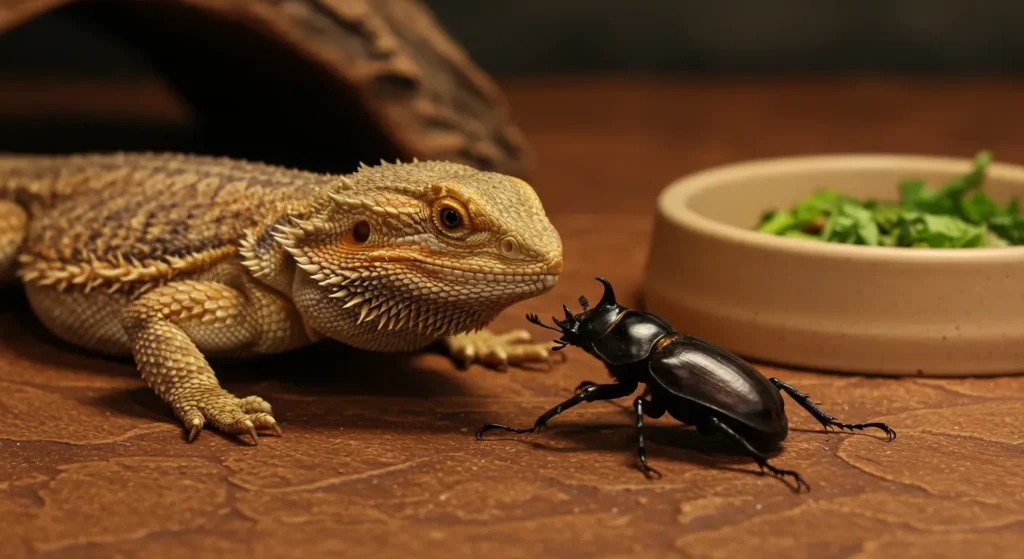
Healthier Alternatives to Beetles in a Bearded Dragon’s Diet
While beetles might seem like an easy snack, they aren’t the best option for long-term reptile health. In this section, we’ll explore healthier alternatives to beetles in a bearded dragon’s diet, focusing on feeder insects that offer better nutrition and easier digestion.
Top Insects Better Than Beetles for Beardie Nutrition
If you’re looking for insects that are better than beetles for beardie nutrition, focus on soft-bodied options with a high protein and moisture content. Dubia roaches, black soldier fly larvae, hornworms, and silkworms are all excellent choices. These insects are easier to digest, have a better calcium-to-phosphorus ratio, and support healthy growth without increasing the risk of impaction. Unlike beetles, they are also more palatable to bearded dragons. Including a variety of these feeder bugs in your pet’s routine ensures a more balanced and beneficial diet. Rotating them helps prevent boredom and nutritional gaps while reducing digestive stress.
Gut-Loading Feeder Insects for Better Bearded Dragon Nutrition
Even the best feeder insects can fall short if they aren’t gut-loaded before feeding. Gut-loading means feeding the insects high-quality fruits, vegetables, or specialized gut-load formulas 24 to 48 hours before offering them to your beardie. This process enriches the insects with vitamins and minerals your dragon needs. It’s particularly important for calcium and vitamin A absorption. Gut-loading is a simple but powerful way to improve the quality of any feeder bug and enhance your reptile’s overall nutrition.
Weekly Feeding Plan for a Balanced Bearded Dragon Diet
A consistent weekly feeding plan ensures that your bearded dragon receives the right mix of proteins, vegetables, and supplements. Adult beardies should eat insects about two to three times a week, while juveniles need them daily. Use feeder insects like roaches, silkworms, or soldier fly larvae. Pair them with dark leafy greens such as collard, mustard, or dandelion. Add calcium-rich vegetables like squash or bell peppers, and dust insects with calcium powder every other feeding. Avoid overfeeding fruits and skip hard-shelled beetles entirely if digestion becomes an issue.
When to Consult a Vet About Your Bearded Dragon’s Feeding Routine
Be on the lookout for warning signs like weight loss, bloating, runny droppings, or a drop in appetite. These symptoms may point to poor nutrition, digestive trouble, or even serious illness. If you see any of these issues, schedule a visit with a reptile-savvy vet right away.
An experienced vet can examine your beardie, recommend diet changes, and suggest helpful supplements. Routine checkups also prevent long-term problems caused by poor feeding habits. If you’re unsure how often to feed your bearded dragon—or what to include in its meals—a vet can build a custom plan based on your pet’s age, size, and health needs.
Are Superworm Beetles Okay for Bearded Dragons?
Superworm beetles, also known as darkling beetles, are not toxic—but they aren’t ideal for regular feeding either. While they contain some protein and fiber, their hard shell makes digestion difficult. Most beardies also find the taste unappealing. If your dragon does eat one by accident, it likely won’t cause harm, but you shouldn’t offer them as a frequent snack.
What Happens If My Dragon Eats a Wild Beetle?
Wild-caught beetles can carry pesticides, parasites, or bacteria that may harm your bearded dragon. Since you can’t control what wild insects have been exposed to, they pose serious health risks. If your beardie eats one, monitor for signs of distress like vomiting, sluggishness, or appetite loss. Contact a vet immediately if symptoms appear.
How Do I Identify Safe Beetles for My Beardie?
Stick to farm-raised insects from trusted reptile suppliers. Safe options include darkling beetles in small quantities—but only as rare treats. Avoid brightly colored beetles or those with unknown species. If you’re unsure whether a beetle is safe, skip it and choose a proven feeder insect like dubia roaches or crickets instead.
Conclusion
So, can bearded dragons eat beetles? The answer is yes—but with caution. While some beetles like darkling beetles may be safe in small amounts, many others pose serious risks due to their hard shells, high chitin levels, and potential toxicity. Not all beetles are digestible or nutritious enough to be a regular part of your bearded dragon’s diet.
Instead of relying on beetles, focus on gut-loaded feeder insects like dubia roaches, black soldier fly larvae, or silkworms. These offer better nutrition, easier digestion, and fewer risks. If you do choose to let your bearded dragon eat beetles, treat them as an occasional snack—never a staple.
And as always, when in doubt, consult a reptile-savvy vet to make sure your beardie’s diet is balanced, safe, and suited to their specific needs. Your dragon’s health depends on smart, informed feeding decisions.

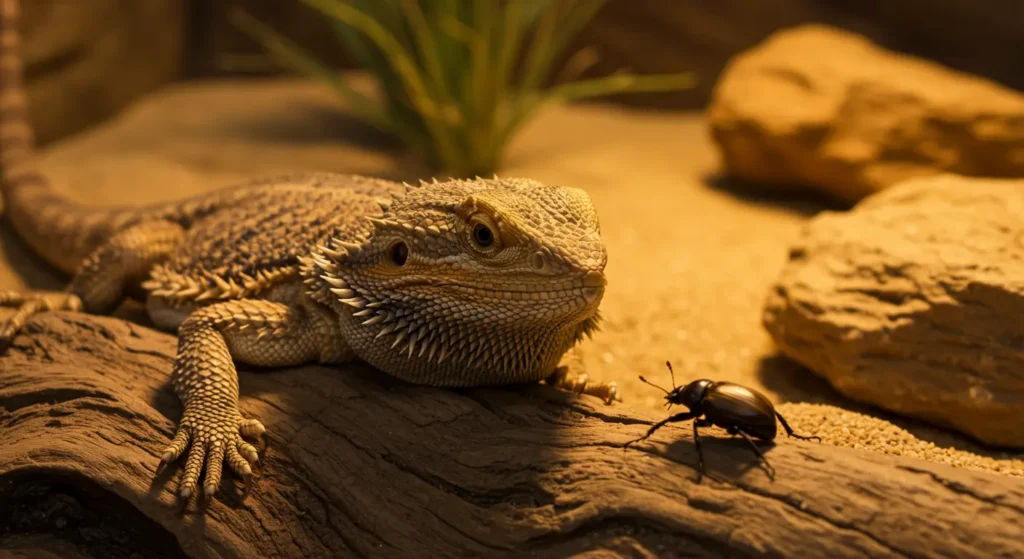
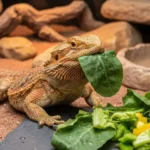
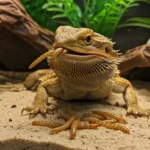
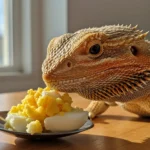
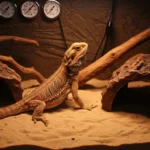
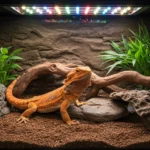
2 thoughts on “Can Bearded Dragons Eat Beetles? Expert Advice for Safe Feeding”